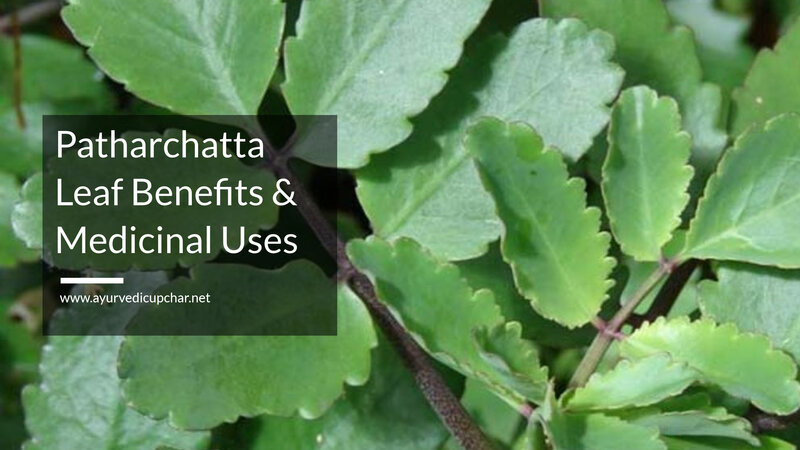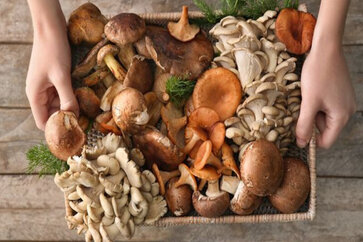Ranapala Plant Uses। Amazing Benefits Of Using Leaf of Life
Ranapala Plant is known as the “Leaf of Life”, and also as Kalanchoe Pinnata or Patharchatta plant in Hindi. It is a green leafy and fleshy herbaceous plant which is plant that is native to Madagascar.It is commonly kept as a houseplant and is found in most parts of the world. 
Besides as a house plant it is popularly known for its medicinal properties throughout the world. Due to its multiple uses in various ailments, it is also rewarded by the name “Miracle Leaf”.Even though the plant is not native to India. India has a long history of utilizing Bryophyllum pinnatum or the so-called ranapala plant.
Since ancient times the plant has been used in folk medicines in Indian traditional systems of medicine like Ayurveda, Unani, and Homoeopathy.
Where is the ranapala plant found?
The Ranapala plant (Bryophyllum pinnatum) is native to Madagascar, but plants are found in most parts of the world in countries like New Zealand, West Indies, Macaronesia, Mascarenes, Australia, Galapagos, Polynesia, Hawaii, etc.
It is also found in Nepal, Pakistan, Brazil, Egypt, Myanmar, Thailand, and Africa. ranapala plants are found in most regions of India but in Kashmir, the Himalayas, and Khasi Hills the region of Assam; they are found in large amounts.
These days these plants are cultivated in parts of Indian states such as Karnataka, Andhra, Kerala, Tamil Nadu, etc.
How do I identify a ranapala plant?
- Plant: It is a small, upstanding, succulent perennial herb that grows about 1f- 2f in height.
- Leaves: The leaves of this plant are about 5-25 cm long and 2-12cm wide, with simple leaves in lower parts but upper parts have complex joint leaves. It has 6-7 leaves in opposite patterns with a stalk (petioles) about 2-10 cm long. The leaves have an ovate or just oval shape and circled tips (obtuse apices). The end leaflet is notably larger than the others. The new plants are formed from leaves when it is detached from the plant.
- Flower: The flowers of this plant bloom at the top of its stem in branched clusters, with greenish-yellow to pinkish-red in color. It has drooping, tube-shaped flowers that are about 7 cm long and form a cymose panicle.
- Stalks: The stalks are about 10 to 25 mm long in size and are partially merged into a calyx tube that supports the four lobes of the petal. The flower blooms in winter and spring.
- Fruit: The Fruits are papery with a membrane-forming look, with four slender carpels that contain the seeds. The seeds of the fruits are small, oblong-ellipsoid, which is less than one mm in size, and remain enclosed within the old flowers.
Synonyms
- Bryophyllum calycinum Salisb.
- Crassula pinnata.
- Cotyledon pinnata Lam.
- Sedum madagascaricum
- Kalanchoe pinnata
Benefits Of Eating ranapala Leaves
Ranapala plant leaves are used for various ailments treatment such as problems related to skin, to keep blood sugar levels under, to control inflammation, and for proper blood circulation.
Other medicinal properties attributed to Bryophyllum include its ability to fight microbes, fungi, allergies, tumors, ulcers, bacteria, viruses, and insects. It is also regarded as a natural sedative.
Ranapala plant Research
The study was performed by the Department of Pharmacology, University of KwaZulu- Natal, Durban. They have stated that an aqueous extract of Bryophyllum leaf can act as a pain-killer, it has antinociceptive properties that can help to reduce the sensitivity of pain.
Besides this, it has anti-inflammatory properties that can help to reduce inflammation. It also has hypoglycemic properties that can help to bring down high blood sugar levels. Below is some more research result that proves the importance of plants for different ailments.
Ranapala Plant Leaves Uses In Ayurvedic
- Hemorrhoids.
- Renal and vesical calculi.
- Diabetes.
- Venereal diseases.
- Dysuria.
- Alleviates burning sensation.
- Heal’s urinary calculi.
- Cures polyuria.
Part Used
- Roots
- Leaves
- Stem
Uses
- Decoction
- Juice
- Crushed leaves
How to Make Leaf Decoction of ranapala Leaf?
The recipe is quite easy, and simple, and can be made quickly.
- Take one cup of water in a vessel, boil it then add 3 leaves of ranapala leaves in it, let it simmer for 3 minutes.
- Now remove a vessel from heat, and allow settling for about 2 to 3 minutes.
- Now remove the leaves from the tea and pour into a cup, you can add 1 to 2 teaspoons of organic honey for taste.
10 Uses and Benefits of ranapala Leaf
There are many health benefits of ranapala Leaf, it is helpful to cure many ailments. It can be used in many ways such as by using a decoction of the leaves, dried powder of the leaves, or by making a paste of the leaves.
1. Ranapala For Kidney Stones
It is a plant that is most popularly used to remove kidney stones and has a decoction made of fresh leaves twice a day. For quick results, you may also add 500 mg of Shilajit with the decoction and some honey to improve the taste.
2. It Cures Leucorrhoea Naturally
This plant is a boon for women suffering from leucorrhoea ailment and has a decoction made of fresh leaves twice a day. This will help to retard the flow of blood within the blood vessels.
3. Ranapala For Piles
Drink the extract made of fresh leaves twice a day; you will find effective results in piles cure.
4. It Boosts Liver Function
Bryophyllum pinnatum has an anti-oxidant property that promotes the health of the liver, it is a useful remedy to cure jaundice.
5. Ranapala For Colds and Coughs
It is a plant that has properties like methotrexate/ azathioprine that boost the immunity system and defends from the common cold and coughs. Consuming juice from the leaves along with sugar candy or honey can be helpful.
6. It Relieves Stomach Ache
ranapala plant has analgesic properties, which can help relieve stomach aches or stomach pain, one can consume the decoction of the leaves.
7. It Removes Worm
Bryophyllum pinnatum plant has Anthelmintic properties that can be helpful in removing worms in the intestine effectively. Consume decoction of the leaves twice a day with honey.
8. It Heals wounds
The plant has anti-inflammatory properties that help to heal the wound fast and it also prevents scar formation. Using it is simple simply tie the poultice of the leaves around the wound.
9. Diuretic Action
This plant has diuretic properties that can help to cure urinary disorders. Take a decoction made of the juice of the Bryophyllum pinnatum leaf; consume about 40-60 ml of it every day in the morning and evening.
10. It Purifies Blood
This plant has an anti-aggregate property that helps to purify the blood. It helps to remove all the toxins from the body as well as blood and helps improve your health.























